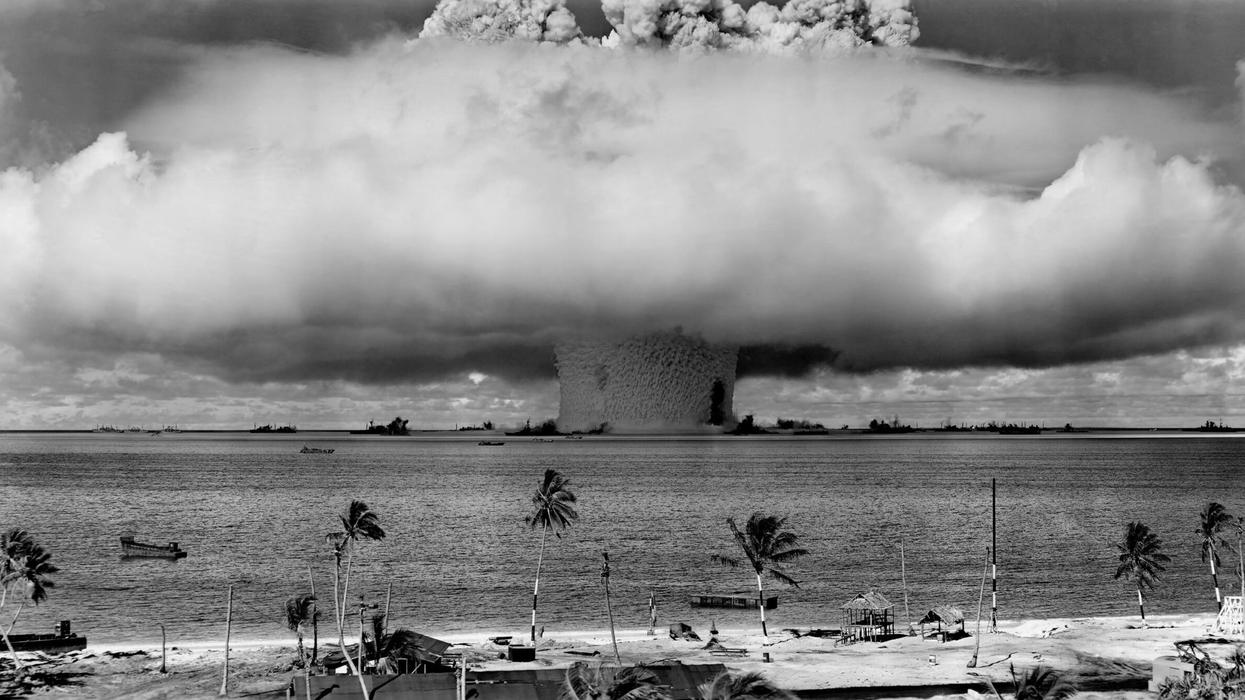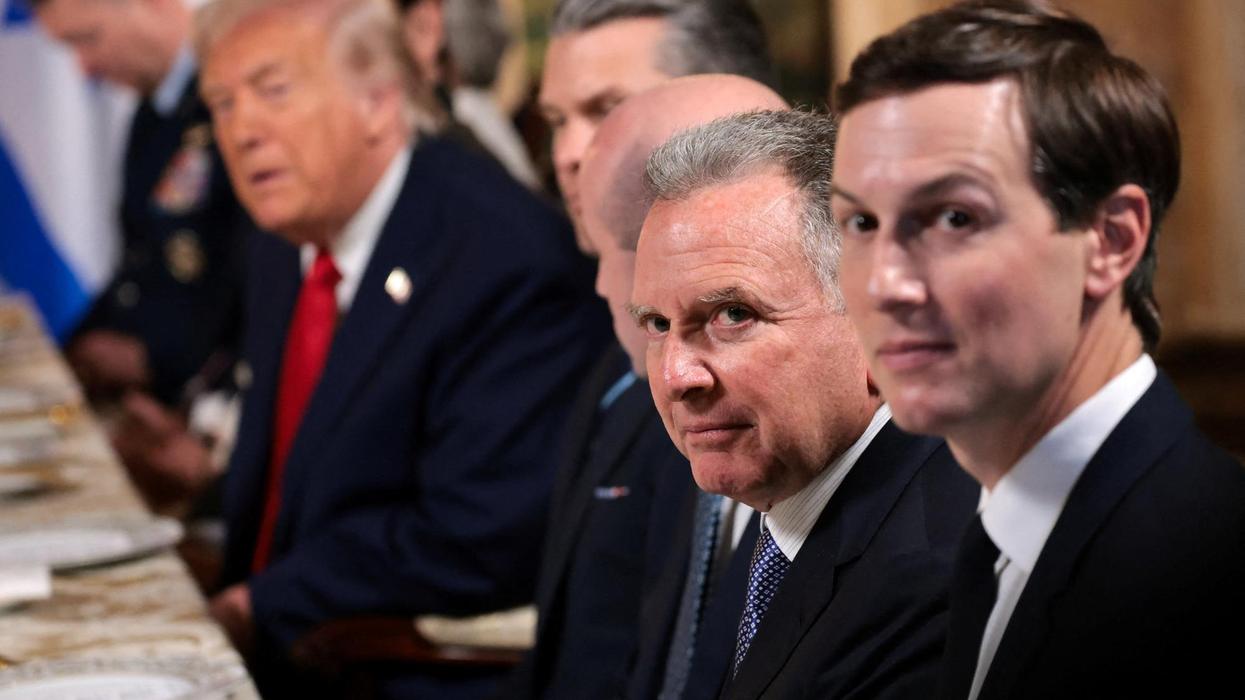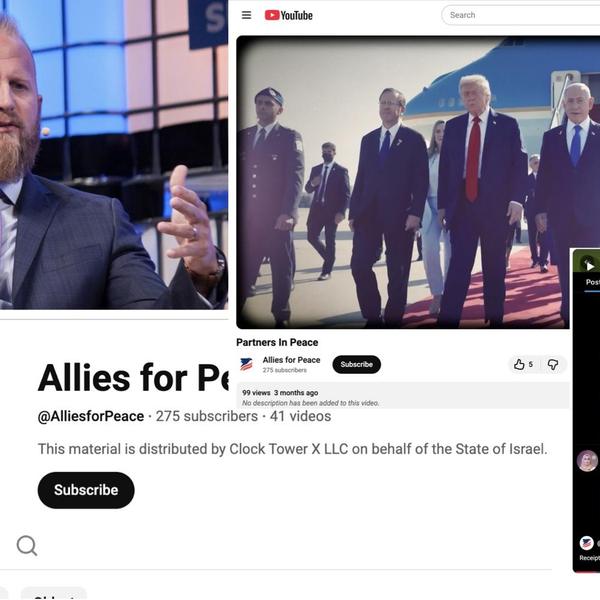President Donald Trump this week dodged the proverbial bullet when Iran limited its military response to the U.S. assassination of General Qasem Soleimani, head of the Iranian Quds Force.
Trump should thank Iran for helping him sustain what has seemed to be one of his most important self-imposed rules of his presidency: don’t get the United States involved in yet another major Middle East war. Tehran could have retaliated by killing Americans, which would have put Trump in a position like the one President Barack Obama faced when in August 2012 he enunciated a “red line” against the Syrian government’s use of poison gas. For not following through on his threat — regardless of whether or not that was the right decision — Obama was attacked by Republicans and others for the rest of his presidency.
Trump must thus have been pleased, personally and politically, as well as surprised by the latest turn in the current crisis. But will he learn the right lessons? That’s the real test.
In his January 8th speech, Trump claimed that U.S. technology helped to avoid the loss of American lives by identifying the targets of Iranian missiles in time to get U.S. and Iraqi military personnel out of the way. Nonsense. Given the missiles short flight time and the number of potential U.S. targets, there had to have been forewarning by Iran through an intermediary — supposedly directly to Iraq. Message received and acted upon. Later, Iranian Foreign Minister Mohammad Javad Zarif said that this strike “concluded” the Iranian “proportionate measures” in response to the Soleimani assassination.
The United States and Iran might not be so lucky next time.
Has Trump Learned Anything?
But what has Trump learned from these recent events? Most important is whether he is finally beginning to grow up as president and commander-in-chief. Indeed, whether he now understands that he can’t get all he wants, that tremendous U.S. military power can’t necessarily bend others to his will.
Obviously, Iran has misbehaved in terms of U.S. interests and desires in the Middle East, as well as those of America’s key partners. But the current U.S.-Iranian standoff wasn’t caused just by Iran and it didn’t happen out of the clear blue sky. The U.S. has also played a negative role, and not just beginning with Trump. In fact, most of Iran's religious proselytizing and geopolitical ambitions had been effectively contained until the U.S. committed its greatest folly since Vietnam in its 2003 invasion of Iraq. All hell broke loose, and the damage done is still with us and with others, not just in the Middle East but also in Europe, where a flood of refugees has catalyzed the worst political crisis in the history of the European Union. Iran saw opportunities in the invasion and took them, as well as hedging against hostile actions by some of its neighbors.
Obama then tried to deal with at least one key problem — preventing Iran from getting nuclear weapons, which would have been the worst blow to Middle East security in decades. In 2015, he negotiated the Joint Comprehensive Plan of Action (JCPOA) between Iran and six major outside powers (China, France, Germany, Russia, the United Kingdom and the United States). It effectively trammeled Iran’s nuclear program. Yet for whatever reason, possibly including jealousy of Obama, in May 2018 Trump withdrew the United States from the nuclear deal. The current treadmill of mutual escalation has been the predictable result.
In his speech to the nation and the world, Trump seemed to grasp the enormity of what almost happened: a war with consequences for everyone that could rival the damage resulting from the invasion of Iraq. He must also have been relieved that he will not approach November’s presidential election with a war underway against Iran. “Rallying ‘round the flag” when the U.S. enters a conflict pays political dividends for a while, but they can quickly dissipate (remember Jimmy Carter and the Iran Hostage Crisis).
Fantasies to Discard
The first thing Trump must realize is that a U.S. president can’t live in a fantasy world, as though other countries don’t have choices or the ability to respond to what the United States does, despite great disparities in raw power. Iran is not the first country to understand the possibilities of asymmetric warfare against the United States (remember Vietnam).
The second thing Trump must understand is that he can’t afford to rely solely on his own counsel or to surround himself just with like-minded people, especially if they are war hawks that could tip the United States into a conflict that serves no useful purpose and could severely damage U.S. interests and cost American lives. Worst of all now is Secretary of State Mike Pompeo, who has been itching for war and has been telling the Iranians that, in effect, they must surrender unconditionally before the United States will negotiate. There are many smart, able, serious, and thoughtful American Middle East experts — they just aren’t present at senior levels in this administration. The only exceptions are senior U.S. military leaders, who understand the price paid in human life by a commander-in-chief’s arrogance, recklessness, or stupidity.
Trump continues believing in other fantasies. Thus, he has called on NATO to assume a greater role in the Middle East, what he calls NATO-ME. While there is clear merit in the Europeans’ assuming more responsibility for security in the Middle East, Trump hasn’t connected the dots. He has spent three years undercutting NATO and even calling into question whether the United States would in all cases honor the Alliance’s core commitment, that an armed attack on any one ally is considered an attack on all. Now he is coming to NATO like the Prodigal Son, expecting to be welcomed home and provided succor. Sorry, Mr. President, given the way you have undercut NATO, it is unlikely that the allies will do what you want in the Middle East, at least until you fully and unambiguously reaffirm U.S. fealty to the Alliance. Even then, most of the allies will be reluctant to go along.
Trump also repeated his attack on the JCPOA, claiming that in any event it “expires shortly” (not true) and that it “gives Iran a clear and quick path to nuclear breakout” (also not true). He has demanded that the other non-Iranian signatories scrap the agreement and negotiate something better. None of them will do so. Even the U.K. prime minister, Boris Johnson, who is desperate to curry favor with Washington in the wake of Britain’s impending departure from the European Union, has already rejected Trump’s plea. And the idea that Iran would be willing to negotiate a new agreement, while the United States continues to pile on sanctions, as Trump has just again done, and will reduce none of them, is a further fantasy.
Other Needed Steps
It is also not clear that Trump has yet learned two further lessons. First, policy toward the Middle East can’t be done just by the seat of his pants but needs both understanding of U.S. interests in the region and at least a college try at creating a coherent strategy (something that also eluded his two predecessors in the Oval Office). Second, America’s partners in the region have their own interests that are often but not always compatible with those of the U.S. For years, Israel, Saudi Arabia, and the United Arab Emirates have often called the shots for U.S. Middle East policy. Maybe with the shock of near war with Iran, Trump will begin to realize the need fully to repatriate U.S. decision making on the region.
In his televised speech, Trump did hold out a small olive branch to Iran: “We want you [Iran] to have a future, a great future, one that you deserve.” This might signal a desire to keep confrontation under control if not also U.S. willingness to do its part in building a basis for eventual, positive change in relations with Iran. But that is still just a hope.
More important is whether Trump is beginning to learn some of the cardinal lessons that can enable him finally to start growing up in the presidency. That, too, may still be just a hope.
















